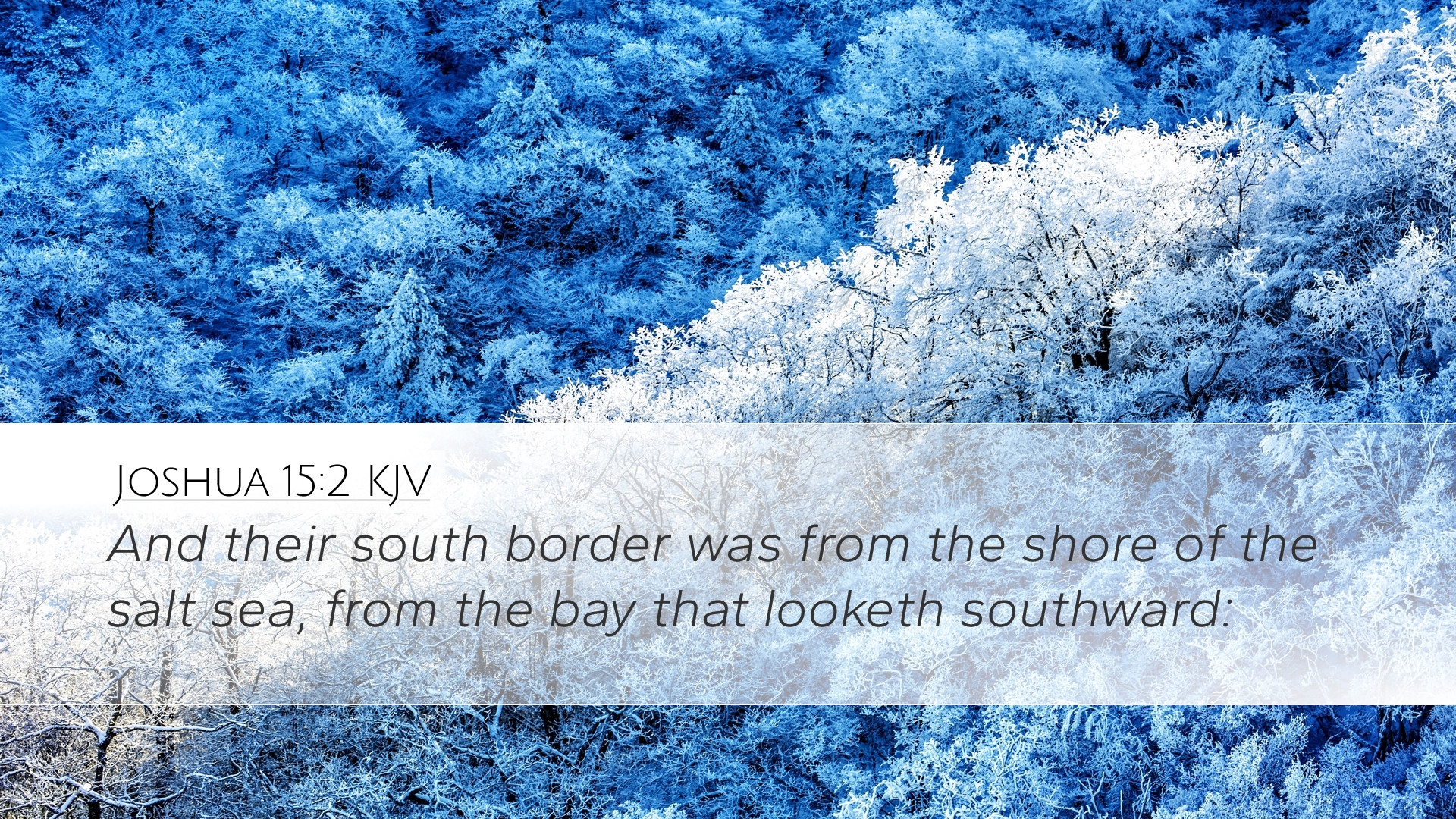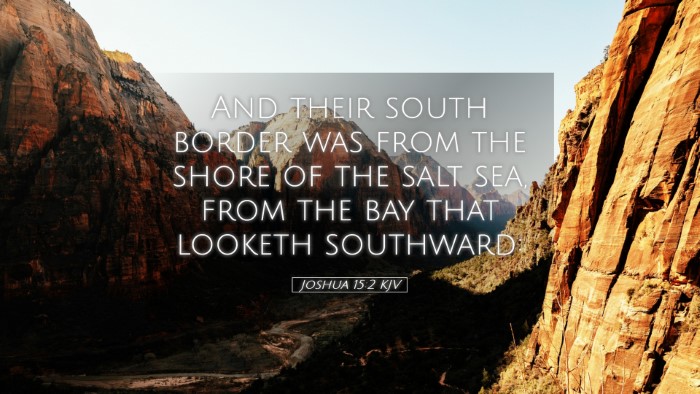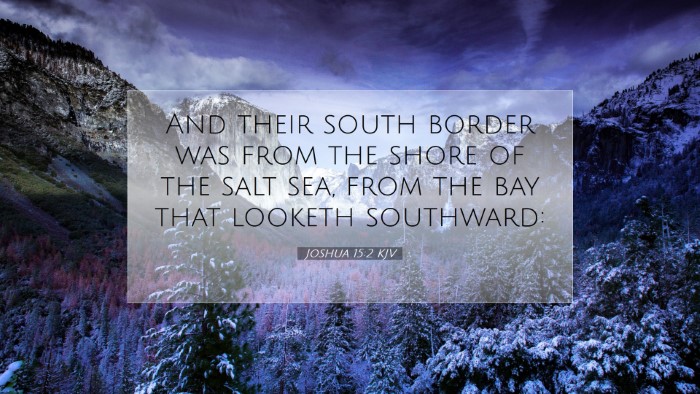Bible Commentary on Joshua 15:2
This commentary seeks to expound upon the significance of Joshua 15:2 through syntheses of public domain commentaries. This verse reads:
"And the inheritance of the tribe of the children of Judah according to their families was towards the border of Edom, even the wilderness of Zin southward was the uttermost part of the south coast." (Joshua 15:2, KJV)
Overview
The allocation of land to the tribes of Israel following their conquests is a crucial aspect of the narrative in the book of Joshua. Judah's inheritance holds particular significance, not only as the name of the tribe but emblematic of the leadership and royal lineage that will eventually emerge from this tribe.
Contextual Significance
This verse is situated within the broader context of the land distribution among the tribes of Israel. It provides both historical and geographical context, reinforcing the identity and borders established for the tribe of Judah.
Geographical Implications
According to Albert Barnes, the description of the borders highlights the importance of geographical landmarks in understanding territorial divisions. The wilderness of Zin and the border adjacent to Edom encapsulate a strategic location that had significant implications for trade and military movement.
Theological Significance
Matthew Henry notes that Judah's inheritance symbolizes divine favor and providence. The allocation of land thereby serves not only as a geographical inheritance but as an assurance of God's promises to His people. Judah's location, characterized by wilderness and borders with Edom, speaks to the challenges and the faithfulness required to possess the promises of God.
Exploring Specific Components of Joshua 15:2
-
Judah as a Leader among Tribes
Adam Clarke emphasizes the preeminence of Judah, which encapsulates both honor and responsibility. This tribe is not only the largest but also represents the line from which King David and ultimately Jesus Christ arises. There is a trajectory of leadership shown here that reflects God's plan for His people.
-
Boundary Definitions
The meticulous detailing of boundaries, as noted by Barnes, serves a dual purpose: ensuring the rightful possession of land while establishing an identity for the tribe. Borders are not just physical; they signify the limits of ownership and God's covenant with the Israelites.
-
The Wilderness Experience
The mention of the wilderness of Zin provides a deeper insight into the arid conditions that the Israelites navigated. Henry posits that this wilderness represents the trials believers must endure. However, it also points toward divine sustenance, as God was with His people even amid scarcity.
Applications for Today’s Believers
As contemporary readers and believers delve into Joshua 15:2, several applications can be gleaned:
-
The Concept of Inheritance
The inheritance of the tribe of Judah serves as a reminder of the spiritual inheritance that believers possess through Christ. The idea of claiming one’s inheritance fosters a sense of belonging and responsibility in God's family.
-
Understanding Boundaries
In a modern context, understanding the limits God has set can lead to a greater appreciation for His guidance in our lives. The importance of boundaries can translate into personal spiritual discipline and communal identity.
-
Embracing Wilderness Journeys
Wilderness experiences, though arduous, often serve the purpose of spiritual growth and dependence on God’s provision. The commentary by Clarke encourages believers to see these times as opportunities for deeper faith and understanding of God’s faithfulness.
Concluding Thoughts
Joshua 15:2 invites readers into a rich tapestry of historical, geographical, and theological reflections. The insights drawn from esteemed commentators showcase that the allocation of land is more than a historical event; it is an illustration of God's enduring promise, the significance of heritage, and the call to exercise faith amidst life's wilderness. As pastors, students, theologians, and scholars engage with this text, they are reminded of the weight this verse carries in understanding God's covenantal relationship with His chosen people.


